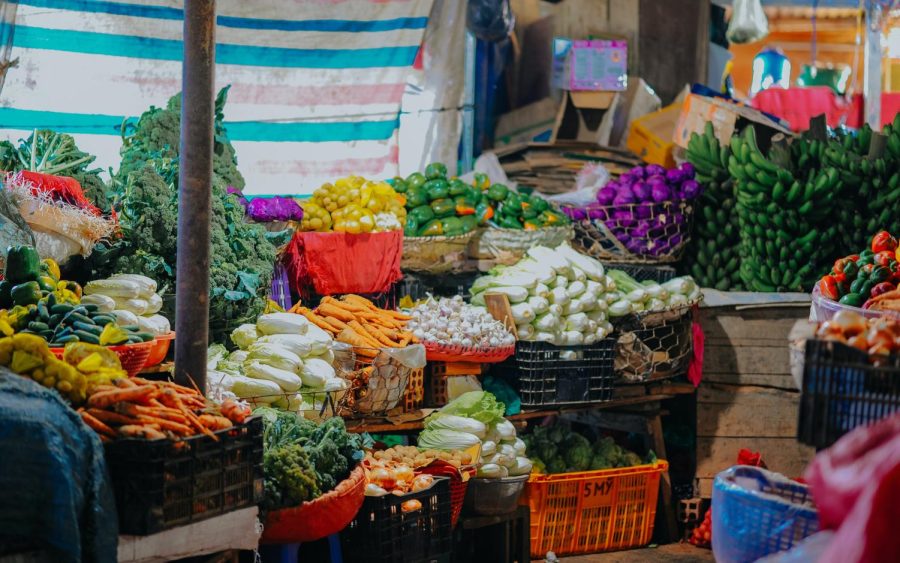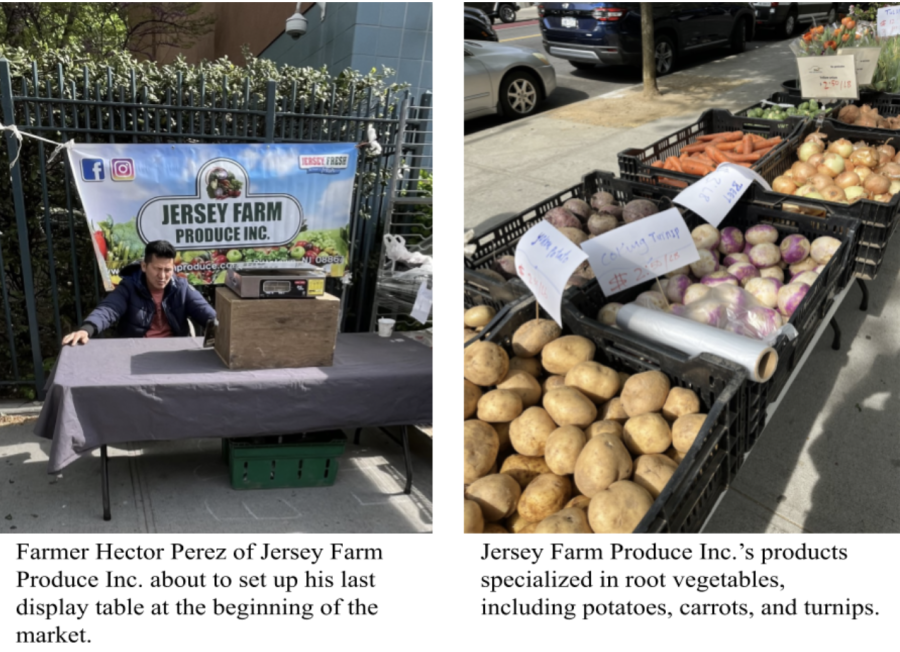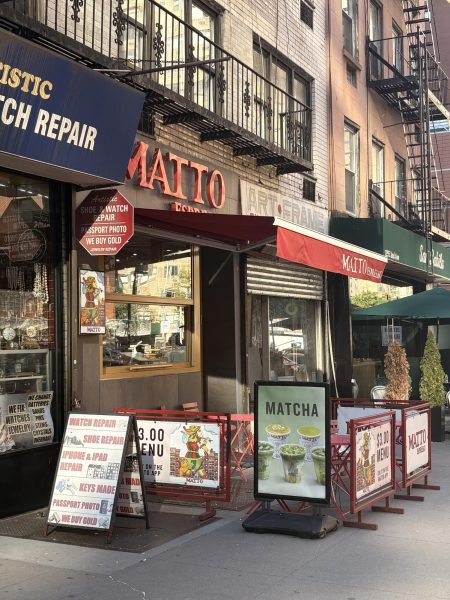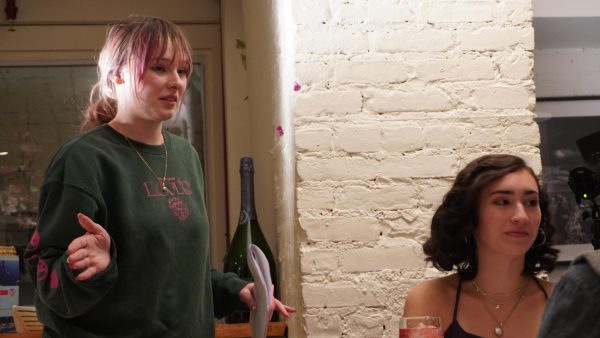Season of Abundance: Farmer’s Markets Coming Back
Reading Time: 4 minutesAs the Coronavirus pandemic consecutively knocked down big-name brands like dominoes, starting in late 2019, it didn’t fail to take out small farms and family-run businesses as well. It was a detrimental block in the road for some families’ sources of income and led to many of them searching for alternatives just to get by. As cases of the virus start to simmer down and businesses are able to re-open, it is important to support these vendors who are selling their products at local farmer’s markets and other small-scale events where they may be. I went to a small market in Chelsea, New York, in March of 2023, just about three years after the initial lockdowns began, to interview some of the vendors and learn how the pandemic impacted their lives.
The first stand I went to was Jersey Farm Produce Inc., which is run by Hector Perez, a farmer based out of Milford, New Jersey. Originally from Mexico, Perez shared how he grew up growing root vegetables, or vegetables that are grown underneath the soil, with his family in Jalisco. He then told me how he was a construction worker for a long time but came back to farming because he preferred it. He didn’t speak much English but was a source of fluency for Spanish-speaking customers. When asked about how the pandemic affected his business, Perez shook his head and told me he “finally got back out here again. My food is my life. I rely on my food and (the) pandemic hurt me very much.” Perez grows all of his non-pesticide-induced produce in a large greenhouse on his property in Milford with the help of his other immigrant friends and some family members. Perez shared that the pandemic made his job ten times harder because he couldn’t receive that same help anymore, knowing it wasn’t safe for him and his friends to be social.
The next stand was Meredith’s Bread, a family-owned bakery out of Kingston, NY, since 1987. Meredith’s Bread sells handmade and preservative-free bread, as well as gluten-free options for people with dietary restrictions- a trait not commonly sold in the United States until the last few decades. I was able to talk to Amanda Allen, the daughter of the founders, Bob and Lynn Allen, who suffered from Celiac Disease, which led to the inclusion of gluten-free products. Amanda told me that the pandemic had a hard-hitting impact on her family’s business, mentioning that their small shop in Kingston had to be momentarily closed. Her family was innovative, however, and came up with a system of curb-side pickup orders for their fresh products. Amanda told me that her family “used the pandemic as a way to be more creative, rather than a bump in the road.” She also talked about how important it was for people with dietary restrictions to still have their basic needs met, even in a time of crisis.
The next stand had a different story. SayChef, a canned fruit and vegetable business owned by a man named Chef David, was started in 2020, originally as a personal project at the height of the pandemic. Chef David was very busy with what was probably the most customers in the whole of the market, so he only had a little time to talk to me. What he did tell me was that all of his products were grown pesticide-free and non-GMO in his own backyard, as well as sun-dried and pickled in his own home. He also spoke about how using reusable jars for his products was important because he didn’t want to create more waste “in this economy and state of the world”.
The next stand over was Pickle Licious, a pickle and complimentary snacks company founded in 1991 out of Teaneck, NJ, by Robyn Brown-Samra. They were selling a wide range of pickles, olives, and marinated mushrooms, as well as snacks that would typically be on the same platter, like various nuts and hummus, all grown and prepared by Brown-Samra and her family. Brown-Samra spoke about how crucial these farmer’s markets were for her business because they were how she attracted the most customers and gained the most exposure. She told me about how the pandemic encouraged her to expand her business on social media rather than relying on the few loyal customers she had in her hometown. “We started using better-quality packaging when we started selling orders online and had to mail them,” she said. Pickle Licious now runs on both the Internet and at local farmer’s markets and has more customers than ever before.
The last stand I visited was Greenhouse on Greendell, a microgreens company started in 2022 by Karen Anderson and Dan Kohuth out of Johnsonburg, NJ. The couple grows non-GMO and pesticide-free microgreens, specially-cut flowers, and garlic on their six-acre farm. This business was started after a lot of research, trial, and error during the pandemic, as well as Anderson’s experience in farming throughout her childhood. Microgreens are young seedlings of vegetables and herbs, all able to be consumed wholly. Anderson and Kohuth, similar to many other vendors, saw how important it was to have ethically-sourced and non-wasteful products and encourage more businesses to get the memo. “I love what I do because it doesn’t hurt the earth, and it doesn’t hurt people,” said Anderson after being asked about why she chose to pursue this business. “The pandemic was a sign to change how things were, and if we start with the basics, who knows where we will be in years from now?”
These vendors, which can be found at most seasonal markets run by Down to Earth, strive to provide healthy and thoughtful options for people, but they require immense support to stay in business. It is important to support these local businesses in order to encourage more ethically-sourced products and to provide a living for the people behind these ideas. These vendors and many more can be found at other farmer’s markets throughout the city through the end of late autumn.











